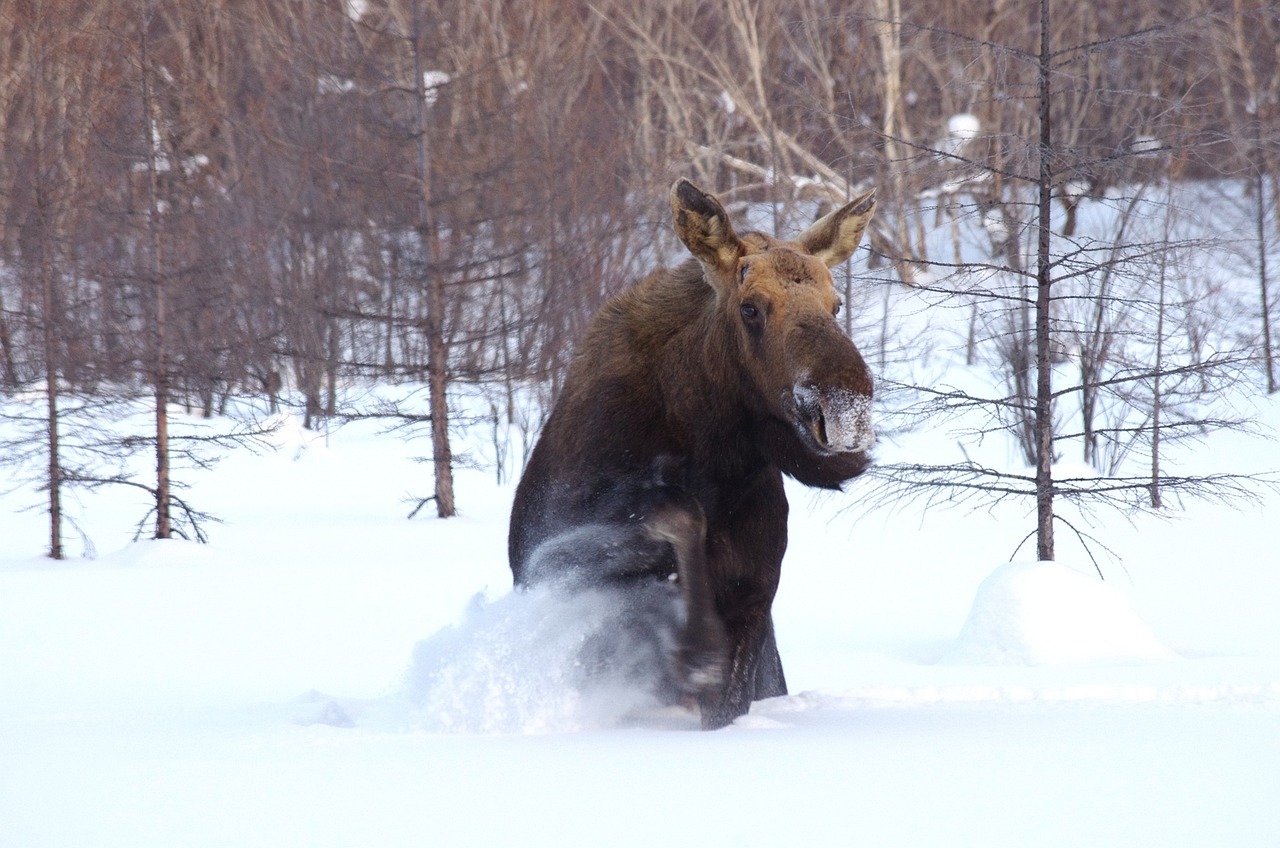
SHARE THIS ARTICLE:
Ontario Moose Face Increased Threat from Winter Ticks
 Ontario OUT of DOORS reporter, Matthew Robbins, 01.22.2024, published the online article, “Winter ticks threaten moose.” In this article Robbins reports that although the winter tick(Dermacentor albipictus) is not new to the province of Ontario, the trend of increasing winter tick populations due to impacts of climate change are likely relevant to Ontario.
Ontario OUT of DOORS reporter, Matthew Robbins, 01.22.2024, published the online article, “Winter ticks threaten moose.” In this article Robbins reports that although the winter tick(Dermacentor albipictus) is not new to the province of Ontario, the trend of increasing winter tick populations due to impacts of climate change are likely relevant to Ontario.
This increase in tick populations may have the same devastating impacts to moose as is being witnessed in northern New Hampshire and western Maine, USA. These areas have experienced 70% winter/spring mortality in calf moose with 88% of mortalities attributed to infestations with winter ticks to a study published in the Canadian Journal of Zoology (2018). Moose that are heavily infested with the parasitic ticks (which complete their entire life cycle on a single host) often experience severe blood loss, emaciation, anemia, and eventual death.
The winter tick has expanded north over the last several decades from the southern Yukon to the central Northwest Territories, and Ontario is already experiencing steep declines of moose populations in many regions. Studies continue throughout British Columbia, Quebec, New Brunswick, and parts of Ontario to understand the factors which are influencing this decline in moose. Outdoorspeople in the province are encouraged to report dead moose, moose with hair loss, or any other signs of tick-related stress.
For More Information:
Read the Ontario OUT of DOORS Article
Read More LDA Articles on Climate Change Impacts





